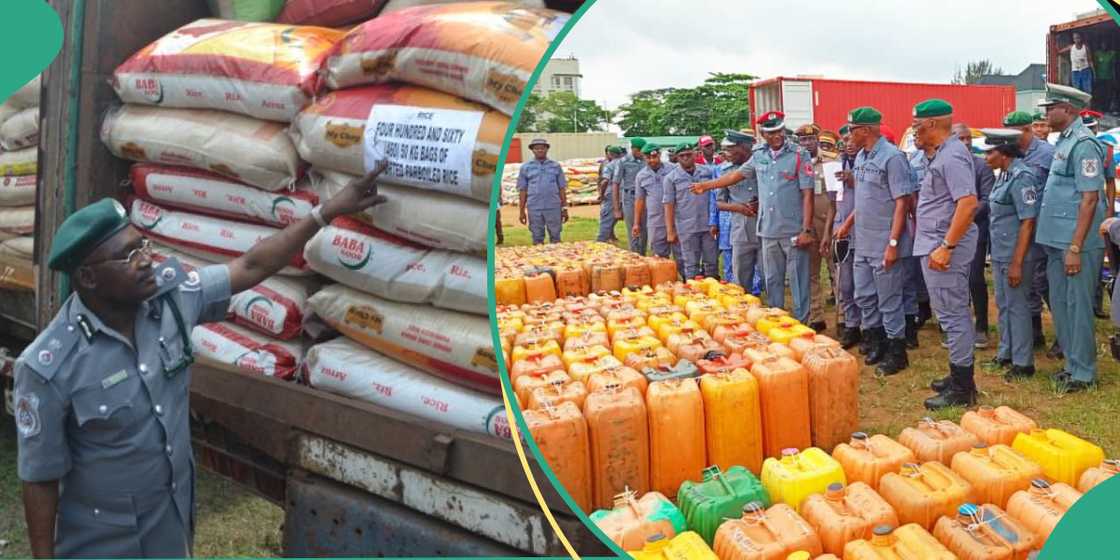Customs Sounds Alarm on How Smuggled Rice, Fuel Worsens Nigeria's Forex Crisis
- The Nigerian Customs has warned of the consequences of smuggling prohibited items, especially rice and petrol
- The service reiterated that the continuous smuggling of these banned goods adversely affects Nigeria's economy and forex woes
- Speaking to journalists, the Customs Area Controller highlighted the need to stop rice smuggling to allow local rice millers to succeed
Legit.ng journalist Victor Enengedi has over a decade's experience covering Energy, MSMEs, Technology and the Stock Market.
The Federal Operations Unit, Zone A, of the Nigeria Customs Service in Lagos has expressed alarm over the ongoing smuggling of rice, petrol and other goods, highlighting it as a significant contributor to the foreign exchange crisis and a threat to the nation’s economy.
The Unit criticised the damaging impact of rice smuggling and other illegal imports, stressing that such activities rob the federal government of critical tax revenue.

Source: UGC
A few months ago, the service clarified that the importation of rice into the country through land border remains banned.

Read also
“How my friend dumped his Rolls-Royces for Honda after fuel hike,” Tinubu speaks, video trends
Illicit rice, fuel trade hits forex stability
Kola Oladeji, the Customs Area Comptroller for Zone A, shared these concerns while presenting seized foreign parboiled rice to journalists at the command.
He said:
“There is the need to stop rice smuggling to allow local rice millers to succeed. Smugglers don’t pay tax, they don’t pay anything and all these prohibited items are not meant for this country.”
Oladeji explained that the persistent daily exchange of naira for CFA contributes significantly to the naira's instability in the market.
According to The Sun, he called for an end to the smuggling of rice and other prohibited items.
Although Oladeji did not specify the quantity or value of the confiscated goods, he mentioned that the seizures were made within the last 24 hours at the South West borders.
He added that the operation was the result of prolonged surveillance and careful coordination.
Recall that at the directive of President Bola Tinubu, the NCS began the distribution of seized food items to Nigerians to ameliorate the hardship in the country.
Speaking with Legit.ng, Ifeanyi Ubah agrees with the Customs that smuggling prohibited items like fuel and rice significantly harms Nigeria's economy and weakens the naira.
He said:
"It undermines local industries by promoting unfair competition, reducing demand for domestically-produced goods, and stifling job creation. Moreover, illegal cross-border trade depletes foreign reserves as smugglers often convert naira into foreign currencies, further straining the exchange rate. Fuel smuggling worsens subsidy leakages, increasing government expenditure."
He added that addressing these challenges requires stricter border controls, public awareness, and policies that encourage local production and discourage smuggling.
Customs integrates 25 banks on revenue platform
Meanwhile, Legit.ng earlier reported that the NCS had integrated 25 banks into its Indigenous payment and clearing platform.
The platform, called B’Odogwu, was launched to modernise customs processes and enhance national revenue generation.
The Customs revealed that the platform has diversified shipments, boosted trade and introduced new revenue streams.
Source: Legit.ng



